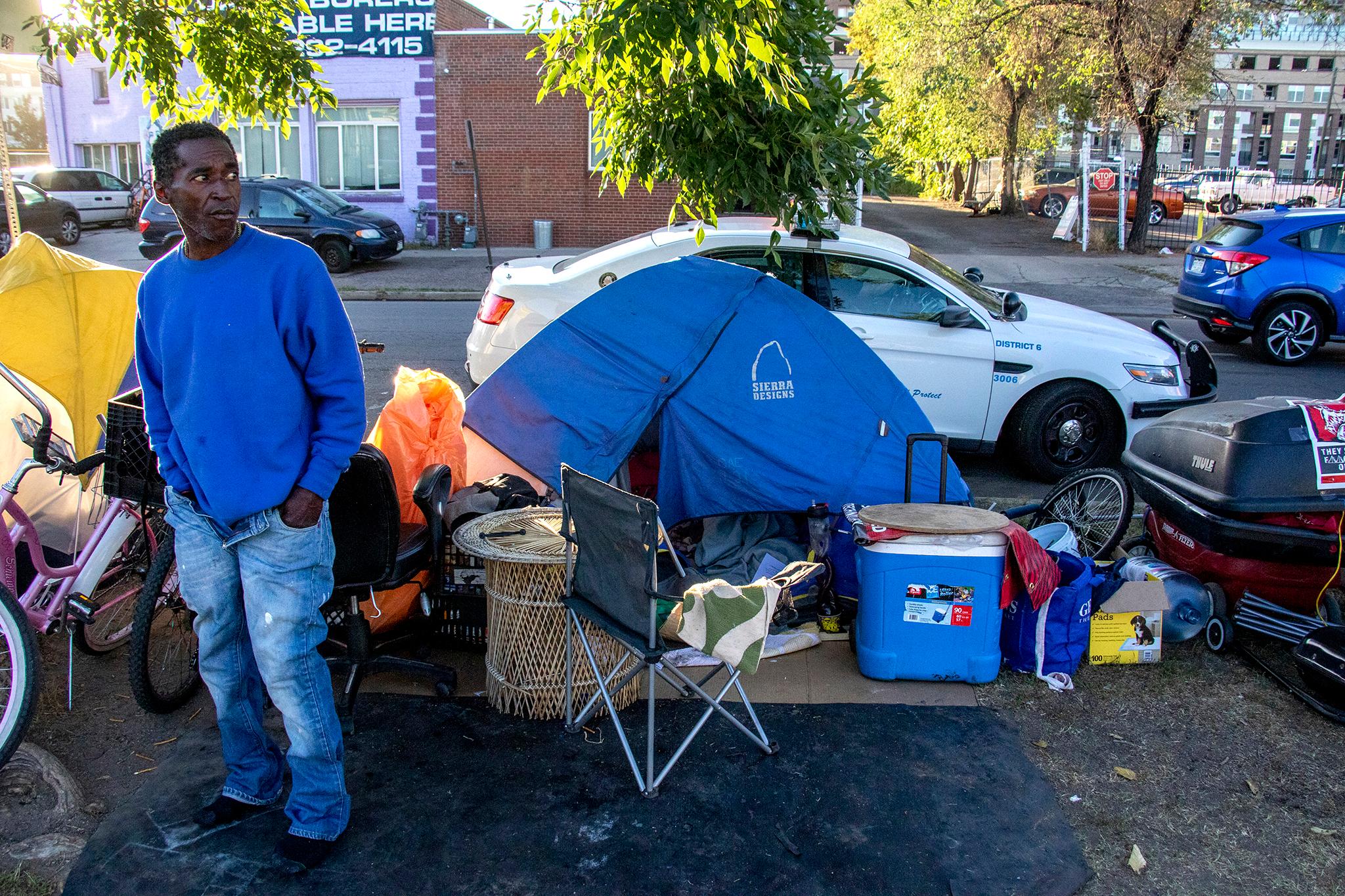An activist who settled a suit with Tucson, Arizona over that city's treatment of people experiencing homelessness has now taken legal aim at Denver's urban camping ban and other regulations.
In an interview with Denverite, Jonathan McLane acknowledged some people in Tucson have questioned his motives. He said he is acting out of faith and because of his own experience of homelessness.
According to papers filed Jan. 7 in federal court in Denver, McLane and two other plaintiffs acting as their own lawyers seek $50 million in punitive and compensatory damages, claiming their efforts to expand their support for people living in homelessness to Denver were stymied by laws here that they say violate the constitution.
McLane's U.S. District Court suit follows a Denver county judge's narrow ruling that because Denver's shelters are inadequate, its ban on urban camping violates constitutional protections against cruel and unusual punishment. The ban outlaws on public property such activities as eating, sleeping or storing belongings while sheltering with tents, tarps or blankets. The city is appealing the county court ruling.
Last fall, Denver settled a federal lawsuit filed by activists over cleanups of encampments. The settlement finalized in September requires, among other things, for Denver to give a week's warning in writing before crews conduct large cleanups and to ensure the return of property confiscated during clearances.
McLane's lawsuit targets the camping ban, another Denver ordinance restricting people's ability to sit or lie downtown, park curfews and other measures.
In Arizona, McClane had sought $5.5 million in damages for alleged harassment by Tucson officials of a homeless encampment in a downtown park. Tucson settled that case in 2017 for $40,000 with no admission of fault. Before the settlement the city approved a new law that defined what items people can keep on the sidewalks.
In an interview, McLane told Denverite that he did not expect to get millions, but did hope to change laws. The big dollar numbers are meant to grab attention and give government officials pause, he said.
"No matter whether we get $1 or $10 million or $1 million, all of it's going to go back into this work" of supporting people experiencing homelessness, McLane said. "Because that's what we do."
"I'm a pastor that runs a veteran homelessness transition center," he said.
He said he was arrested last May in Denver after setting up tents, a canopy and a table near Civic Center Park as part of an effort to publicize plans to bring his project for veterans to Denver. While he said the charges were eventually dropped, that arrest is at the heart of his Denver suit.
During the Arizona case, a Tucson newspaper columnist reported comments from McLane that seemed to indicate the activist was seeking personal gain.
"We're in a suit for $5.5 million," Tucson Star columnist Tim Steller quoted McLane as saying in 2015. "That's what we're claiming in damages. Once this is all said and done, my children will be more than well taken care of."
Michele Ream, a social worker who has a tiny home project in Tucson to address homelessness, said in an interview that she worked with McLane years ago but has since disassociated herself from him. She said he has a knack for drawing attention to the issue of homelessness, but also to himself.
PJ D'Amico, a Denver activist, said he has slept in a tiny home village McLane built in Tucson for veterans and others experiencing homelessness. D'Amico called McLane a national leader on tiny homes, urban encampments and fighting laws seen as criminalizing homelessness.
"To be an activist is to be an attention seeker," D'Amico said. "I appreciate his (McLane's) attention-seeking."












